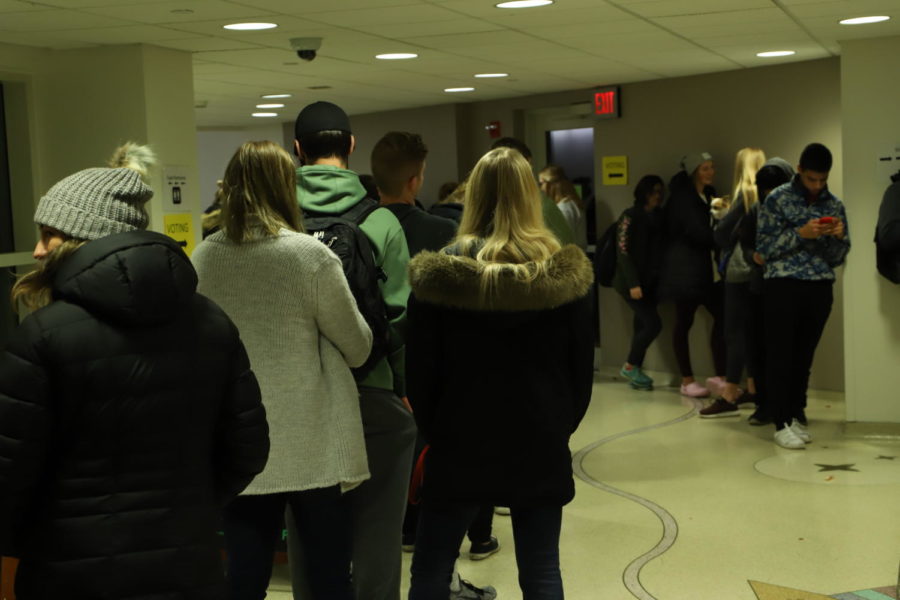League of Women Voters to host vigil for voting rights
Patrick Schmidt/ Iowa State Daily
Iowa State students waiting in the halls of Buchanan hall, to vote on Nov. 6, 2018.
August 5, 2019
The League of Women Voters of Iowa will host a candlelight vigil Tuesday to illuminate the Supreme Court’s decision in Shelby County v. Holder and its impact on the 1965 Voting Rights Act (VRA).
Tuesday is the 54th anniversary of the passage of the VRA. Signed into law by President Lyndon B. Johnson, the VRA secured the right to vote for racial minorities throughout the country, which especially made a difference in the South.
The expansive legislation came in response to nationwide demonstrations during the Civil Rights Movement — namely the Mississippi Summer Project and the Selma-to-Montgomery marches led by Martin Luther King Jr. — which were met with widely-televised state violence against organizers and demonstrators.
Six years ago, in a 5-4 ruling, the Supreme Court effectively lifted section 4(b) of the 1965 Voting Rights Act. The ruling allowed states with particularly long histories of voter suppression and racial discrimination practices to no longer submit changes in voter laws and polling locations to the Department of Justice for pre-clearance.
Since the 2013 ruling, nearly 1,000 polling locations have closed, primarily in minority neighborhoods, low-income districts and on college campuses. According to a 2016 report from the Leadership Conference Education Fund, poll closures have mostly occurred in the states of Georgia, Arizona, North Carolina, Louisiana, Texas and Florida.
Georgia’s precincts specifically took a hard hit leading up to the 2018 gubernatorial race between Stacey Abrams, a Democrat who lost by 1.4% — nearly becoming the first black woman elected governor in the United States — and Brian Kemp, the Republican secretary of state.
In succession from 2012 to 2018, 214 voting precincts were closed throughout Georgia under the guise of making elections more cost-efficient by consolidating polling places in more “convenient” neighborhoods while Kemp oversaw voting in the state.
Chief Justice John Roberts delivered the opinion of the court in the 2013 Shelby ruling, citing that section 4(b) pre-clearance requirements were based on “decades-old data” and “voter registration and turnout numbers in the covered states have risen dramatically in the years since.”
The opinion concludes, “Today the Nation is no longer divided along those lines, yet the [VRA] continues to treat it as if it were. … There is no longer such a disparity.”
In February 2019, Congress introduced the Voting Rights Advancement Act which reinstates section 4(b) of the original VRA, requiring preclearance for changes to local and state voting processes.
Congregating from 8 p.m. to 9 p.m. outside of the Ames City Hall, Tuesday night’s vigil will support the passage of the new legislation.

















